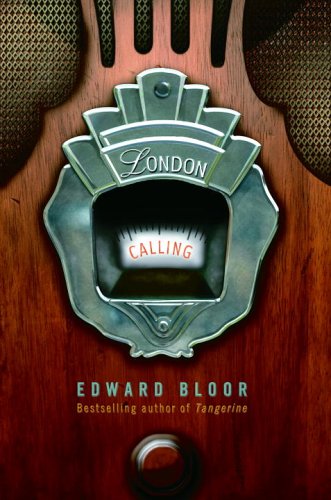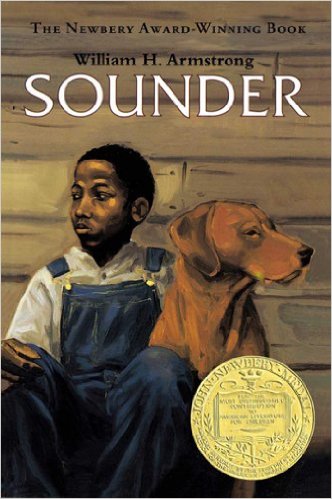[button color=”black” size=”big” link=”http://affiliates.abebooks.com/c/99844/77798/2029?u=http%3A%2F%2Fwww.abebooks.com%2Fservlet%2FSearchResults%3Fisbn%3D9780375843631″ target=”blank” ]Purchase here[/button]
London Calling
by Edward Bloor
Such books as Tangerine, Crusader, and Story Time have made the name of Edward Bloor synonymous with “Uh-oh, better keep a hanky handy.” This book, told by a man in the year 2019 as a memoir of his present-day boyhood, stays true to tradition. It ventures boldly into territory that would scare away most children’s authors today. It depicts alcoholism, depression, crisis of faith, broken marriage, survivor’s guilt, and school bullying so severe that it makes a boy ill. It tackles historical revisionism, the horrors of war, the death of loved ones, treason, espionage, pimping, and well-known historical figures (such as JFK’s father) selling out to the Nazis. It begins in a malfunctioning school setting (also a common theme in Bloor’s work), and ventures into big questions such as the possibility of time travel, the existence of angels, and the question everyone will be asked when they die (What did you do to help?)
Put that way, it sounds like an awfully heavy book: maybe too heavy to pick up. But it actually isn’t. Through the main character, Martin Conway, we see an intelligent mind questioning established beliefs and, instead of rejecting the beliefs, learning to live with the questions. We see a boy crushed by shame and depression, then pulled into an adventure so strange that he fears for his own sanity. We see a complex father-son relationship, a passive victim learning to stand up for himself, a young man whose destiny seems predestined taking control and breaking free of his family’s sacred history. But all that merely adds emotional depth to what is basically a story about a kid who, aided by a vintage radio, goes back in time and witnesses the German bombing of London in 1940. And somehow, even without being able to affect anything that happened in the past, Martin — or is it Johnny? — uses what he observes to make a difference.
The fact is, this book works because it isn’t about an issue. The fact that all those issues are swirling around in John Martin Conway’s life only makes him credible as an American kid of today. And it helps us to care about him, care enough to be moved by his struggle and growth, his disappointments and triumphs. This book will be especially appealing (and challenging) to Catholic youth, with its spin on their church’s teaching on heaven, hell, and purgatory. Families of other faiths will be challenged to consider and discuss what it implies about what happens after death and why.



